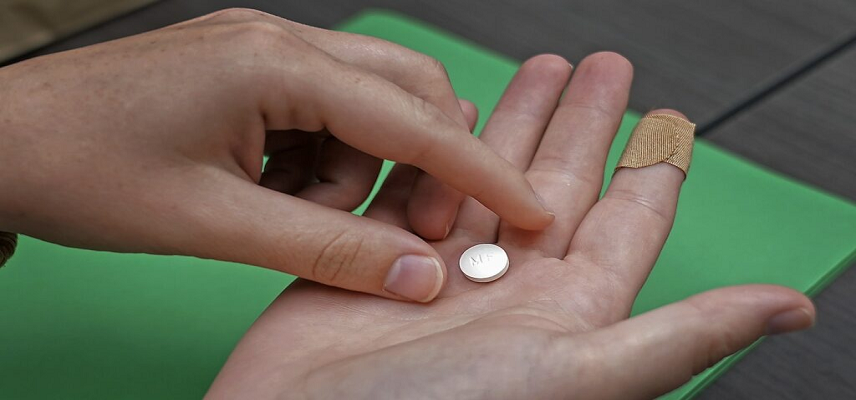Mifepristone Shown to Reduce A1C in Patients with Difficult-to-Control Type 2 Diabetes and Hypercortisolism
Overview
New findings from the CATALYST study show that the use of mifepristone resulted in improved blood glucose (blood sugar) control and weight reduction in patients with difficult-to-control type 2 diabetes and hypercortisolism. The results of the largest prospective trial of its kind were presented as a late-breaking symposium at the 85th Scientific Sessions of the American Diabetes Association® (ADA) in Chicago, and simultaneously published in Diabetes Care®.
The CATALYST Study – Exploring Hypercortisolism in Uncontrolled Type 2 Diabetes
- Over 50% of patients with type 2 diabetes fail to reach target HbA1C levels despite intensive lifestyle changes and multiple drug regimens.
- The CATALYST study was designed to investigate whether hypercortisolism contributes to this difficulty in glycemic control.
- Hypercortisolism is characterized by chronically elevated cortisol production.
- Excess cortisol can antagonize insulin action and raise blood glucose levels, potentially undermining diabetes management.
CATALYST study: Part 1
- Part 1 of the CATALYST study, presented at the 84th Scientific Sessions, revealed that hypercortisolism may be a significant contributing factor in one in four patients with difficult-to-control diabetes.
- Patients with hypercortisolism presenting as uncontrolled type 2 diabetes physically appear the same as those without hypercortisolism, but they do seem to require more medications and have more complications.
CATALYST study: Part 2
- Part 2 of the CATALYST study was a randomized, prospective, placebo-controlled, double-blind multi-center trial designed to assess the safety and efficacy of mifepristone treatment in patients with hypercortisolism who have difficult-to-control type 2 diabetes.
- 136 participants with hypercortisolism received either mifepristone or placebo over a 24-week period to assess the impact on glycemic control and other metabolic parameters.
- Mifepristone is a medication that reduces the effects of cortisol and is FDA approved for the treatment of elevated blood glucose in patients with hypercortisolism and prediabetes or type 2 diabetes.
Mifepristone actions
- Mifepristone reduced A1C by 1.5% as compared to a reduction of 0.2% with placebo.
- The A1C reductions occurred even as many patients decreased or stopped other diabetes medications, including insulin.
- In addition, treatment of hypercortisolism with mifepristone was associated with nearly 10 pounds of weight loss and a reduction in waist circumference of more than two inches.
Expert comments from University of North Carolina School of Medicine
- These findings demonstrate a potentially promising treatment solution for patients with difficult-to-treat type 2 diabetes and hypercortisolism, a patient population frustrated with poor results of their diabetes care,"" said John Buse, MD, PhD, from the University of North Carolina School of Medicine and one of the authors of the study.
- By treating the root cause—excess cortisol—we saw meaningful improvements in both blood glucose and weight which could be game changing when it comes to managing type 2 diabetes.""
The authors note that results may translate to expanded screening for hypercortisolism in patients with type 2 diabetes. Future research is needed to understand whether patients with less advanced type 2 diabetes may experience similar benefits, if other cortisol-directed therapies offer similar results, and whether long-term treatment will provide benefits in preventing complications associated with inadequately controlled type 2 diabetes.
Research presentation details:
Dr. Buse will present the findings at the following symposium along with Drs. Ralph DeFronzo, Vanita Aroda, and Vivian Fonseca:
Symposium: Treatment of Hypercortisolism in People with Difficult-to-Control Type 2 Diabetes—Final Results of the CATALYST Trial
Presented on Monday, June 23 at 3:15 p.m. CT
About the ADA's Scientific Sessions
- The ADA's 85th Scientific Sessions, the world's largest scientific meeting focused on diabetes research, prevention, and care, will be held in Chicago, IL on June 20-23.
- Thousands of leading physicians, scientists, and health care professionals from around the world are expected to convene both in person and virtually to unveil cutting-edge research, treatment recommendations, and advances toward a cure for diabetes.
- Attendees will receive exclusive access to thousands of original research presentations and take part in provocative and engaging exchanges with leading diabetes experts.
- Join the Scientific Sessions conversation on social media using #ADASciSessions.
About the American Diabetes Association
- The American Diabetes Association (ADA) is the nation's leading voluntary health organization fighting to end diabetes and helping people thrive.
- This year, the ADA celebrates 85 years of driving discovery and research to prevent, manage, treat, and ultimately cure—and we're not stopping.
- There are 136 million Americans living with diabetes or prediabetes. Through advocacy, program development, and education, we're fighting for them all.
- To learn more or to get involved, visit us at diabetes.org or call 1-800-DIABETES (800-342-2383).
- Join us in the fight on Facebook (American Diabetes Association), Spanish Facebook (Asociación Americana de la Diabetes), LinkedIn (American Diabetes Association), and Instagram (@AmDiabetesAssn).

Optimize Your trial insights with Clival Database.
Are you exhausted from the uncertainty of trial insights pricing? Clival Database ensures the clarity in the midst of the global scenario for clinical trials to you.Clival Database is one of the best databases that offers an outstanding number of clinical trial data in terms of 50,000+ molecules and from primary regulatory markets as well as new entrants like Indian and Chinese markets.
With Clival, you get accurate positioning of historical sales data, patent database, company profiling, safety & efficacy, and prediction of launch of new innovative molecules helping you to align your research and driving down the cost.
To add value, we further break down our analytics for you so that improving your operational effectiveness; optimizing your clinical trials; and offering you accurate and high-quality data at lowest possible prices becomes possible.
Elevate your trial success rate with the cutting-edge insights from Clival database.
Check it out today and make more informed sourcing decisions! Learn More!







